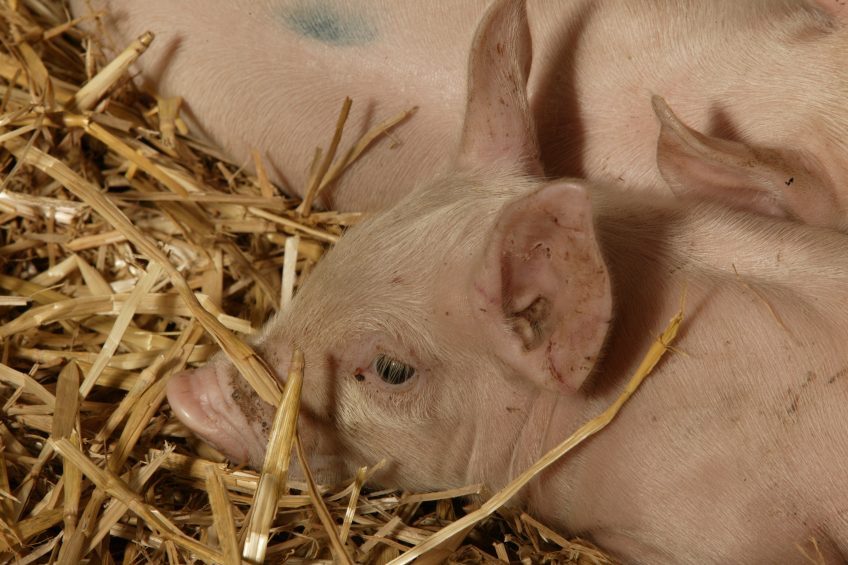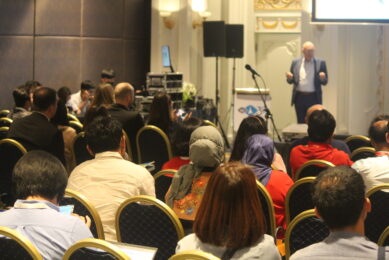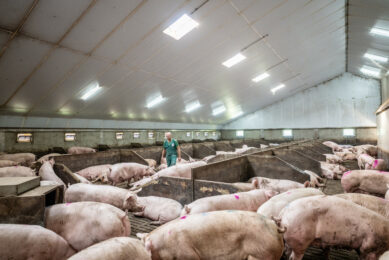Emotional events impact both pigs as well as pen mates

For pigs, negative and positive events may have consequences that extend beyond their duration. This applies to both the welfare of the exposed animals as well as their group members.
That conclusion was drawn by researcher Dr Inonge Reimert and her team of Wageningen UR’s Adaptation Physiology Group, the Netherlands, in a recent paper that was published in the journal Applied Animal Behaviour Science. In the past, Dr Reimert published various researches about how pigs can transfer emotional states to each other.
Positive or negative experiences
The team now aimed to find out whether certain positive or negative experiences stay with pigs longer than just that one moment of experience – in other words: do they have after-effects – and how that may affect group members?
The authors wrote that they “investigated effects of a positive vs. negative treatment on the behaviour and emotional state of pigs and their naive pen mates afterwards.” The scientists observed the behaviour of 96 gilts of 9 weeks of age in the home pen for 5 minutes on 2 different days (day 2 and 18). They did so, directly after 2 pigs per pen had been subjected to a positive or negative treatment in a test room.
Positive and negative treatments
The positive treatment consisted of 4 minutes of paired access to a compartment (15.5 m2) enriched with a layer of 350 litre peat and 5 kg of straw and in which 8 chocolate raisins were distributed.
The negative treatment consisted of 4 minutes of social isolation in a smaller, different compartment (2.3 m2) combined with other negative handlings (e.g. restraint, loud noises) in an unpredictable order.
Pig observations on day 2
On day 2, the researchers found, the treated pigs lay down more, walked less and explored the pen less after the negative compared to the positive treatment.
The scientists wrote that naive pigs simultaneously also lay more, walked less and explored the pen less after their pen mates’ negative treatment. After their pen mates’ positive treatment, in contrast, naive pigs showed more nosing behaviour, nose-nose and nose-body contact, and tended to play more.
Pig observations on day 18
On day 18, treated pigs were only found to eat longer after the negative than the positive treatment, whereas their naive pen mates, similar to day 2, lay more, stood and walked less.
After their pen mates’ positive treatment, at day 18, they still nosed the nose and body of their pen mates more than after their pen mates’ negative treatment, and they tended to wag their tails more.
Negative emotional state
Thus, the researchers concluded, pigs still appeared to be in a negative emotional state for some time after the negative treatment had ended. Furthermore, their pen mates also seemed to be (emotionally) affected even though they were not subjected to the treatment themselves.
The paper in Applied Animal Behaviour Science was authored by Inonge Reimert, Stephanie Fong, T. Bas Rodenburg and J. Elizabeth Bolhuis, Wageningen University & Research, the Netherlands.











